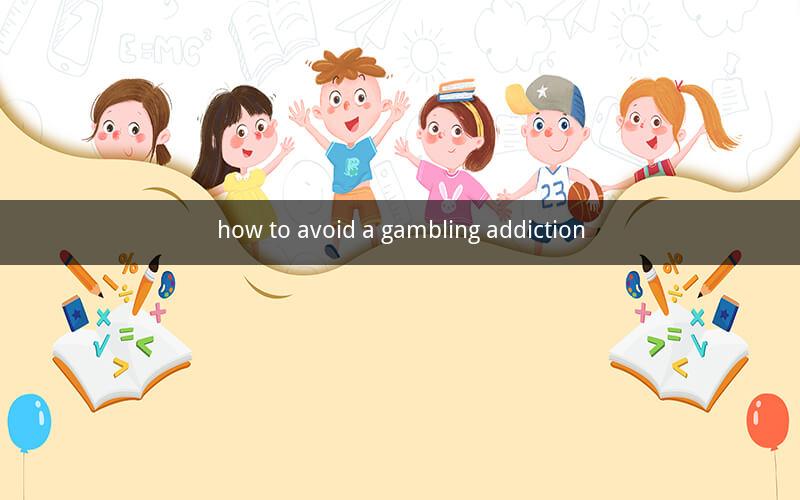
How to Avoid a Gambling Addiction
Table of Contents
1. Understanding Gambling Addiction
2. The Dangers of Gambling Addiction
3. Recognizing the Signs of a Problem
4. Strategies for Preventing Gambling Addiction
- 4.1. Establishing a Budget
- 4.2. Setting Time Limits
- 4.3. Avoiding High-Risk Situations
- 4.4. Seeking Support
5. Building a Support System
6. The Role of Technology in Preventing Gambling Addiction
7. Alternative Activities for Gamblers
8. Professional Help and Resources
9. Case Studies: Success Stories
10. Conclusion
1. Understanding Gambling Addiction
Gambling addiction, also known as compulsive gambling, is a behavioral disorder characterized by an inability to control the urge to gamble despite negative consequences. It affects individuals of all ages, backgrounds, and socioeconomic statuses. Understanding the nature of this addiction is the first step in preventing it.
2. The Dangers of Gambling Addiction
Gambling addiction can lead to severe financial, emotional, and social consequences. It can cause significant debt, strained relationships, and even lead to legal problems. Recognizing the potential dangers is crucial for those who wish to avoid falling into the trap of addiction.
3. Recognizing the Signs of a Problem
Identifying the signs of a gambling problem is essential for early intervention. Common signs include hiding gambling activities, lying about gambling habits, experiencing mood swings, neglecting responsibilities, and feeling restless or irritable when unable to gamble.
4. Strategies for Preventing Gambling Addiction
4.1. Establishing a Budget
Setting a strict budget and sticking to it can help prevent overspending and the development of an addiction. It is important to only gamble with money that can be affordably lost.
4.2. Setting Time Limits
Limiting the amount of time spent gambling can reduce the risk of developing an addiction. Setting specific time limits and sticking to them is a proactive measure to maintain control over gambling activities.
4.3. Avoiding High-Risk Situations
Individuals who are prone to gambling addiction should avoid high-risk situations such as casinos, racetracks, and online gambling platforms. These environments can trigger the urge to gamble and increase the likelihood of developing an addiction.
4.4. Seeking Support
Seeking support from friends, family, or professionals can provide the necessary guidance and support to prevent gambling addiction. Support groups and counseling services can offer valuable resources and advice.
5. Building a Support System
A strong support system is crucial for those who are at risk of developing a gambling addiction. Building a network of individuals who understand the risks and are committed to helping can provide a safety net against relapse.
6. The Role of Technology in Preventing Gambling Addiction
Technology can play a significant role in preventing gambling addiction. Tools such as self-exclusion lists, time management apps, and gambling blocklists can help individuals maintain control over their gambling habits.
7. Alternative Activities for Gamblers
Finding alternative activities to gambling can help reduce the urge to gamble. Engaging in hobbies, sports, and social activities can provide a healthier outlet for entertainment and stress relief.
8. Professional Help and Resources
For those who have already developed a gambling addiction, seeking professional help is crucial. Therapists, counselors, and support groups can offer tailored strategies for recovery and provide a supportive environment for those struggling with addiction.
9. Case Studies: Success Stories
Several success stories illustrate the effectiveness of various strategies in preventing and overcoming gambling addiction. These stories serve as inspiration and demonstrate the potential for recovery.
10. Conclusion
Avoiding a gambling addiction requires a combination of self-awareness, discipline, and support. By understanding the risks, recognizing the signs of a problem, and implementing proactive strategies, individuals can reduce their risk of developing an addiction and maintain a healthy relationship with gambling.
Questions and Answers
1. Q: What are the primary signs of a gambling addiction?
A: Common signs include hiding gambling activities, lying about gambling habits, experiencing mood swings, neglecting responsibilities, and feeling restless or irritable when unable to gamble.
2. Q: How can I establish a budget to prevent overspending?
A: Set a specific amount of money allocated for gambling and stick to it. Only use money that can be affordably lost and avoid using funds designated for essential expenses.
3. Q: Are there any apps that can help prevent gambling addiction?
A: Yes, there are several apps available that can help manage gambling habits, such as self-exclusion lists, time management tools, and gambling blocklists.
4. Q: What should I do if I suspect a loved one has a gambling addiction?
A: Encourage open communication, offer support, and suggest seeking professional help. It is important to approach the situation with empathy and understanding.
5. Q: Can online gambling be more addictive than traditional gambling?
A: Yes, online gambling can be more addictive due to its convenience, accessibility, and the potential for rapid, continuous play.
6. Q: How can I find a support group for gambling addiction?
A: Contact local mental health organizations, therapists, or counselors who specialize in gambling addiction. Online directories and support networks can also provide resources.
7. Q: What role does therapy play in treating gambling addiction?
A: Therapy can help individuals understand the roots of their addiction, develop coping strategies, and provide a supportive environment for recovery.
8. Q: Are there any alternative activities that can help reduce the urge to gamble?
A: Yes, engaging in hobbies, sports, and social activities can provide a healthier outlet for entertainment and stress relief.
9. Q: Can gambling addiction be cured?
A: While there is no guaranteed cure for gambling addiction, it can be effectively managed and treated through various interventions and support systems.
10. Q: What should I do if I feel I am developing a gambling addiction?
A: Take immediate action by setting limits, seeking support, and considering professional help. It is important to address the issue early to prevent further complications.